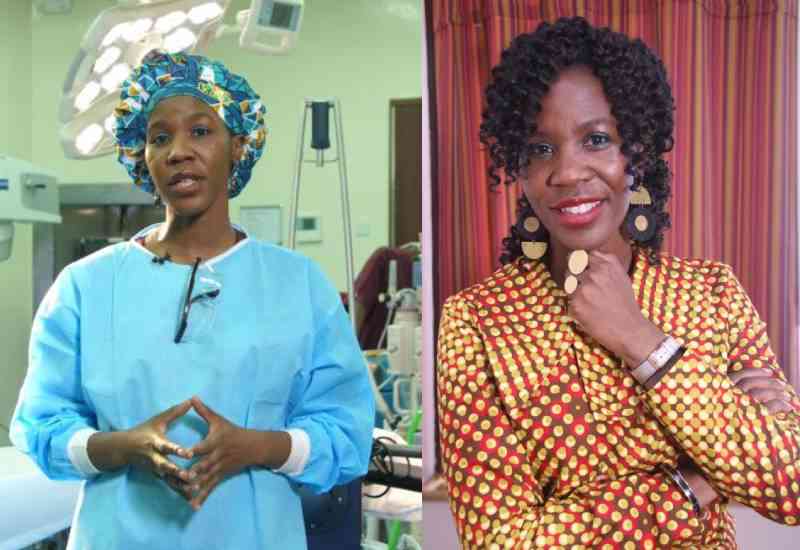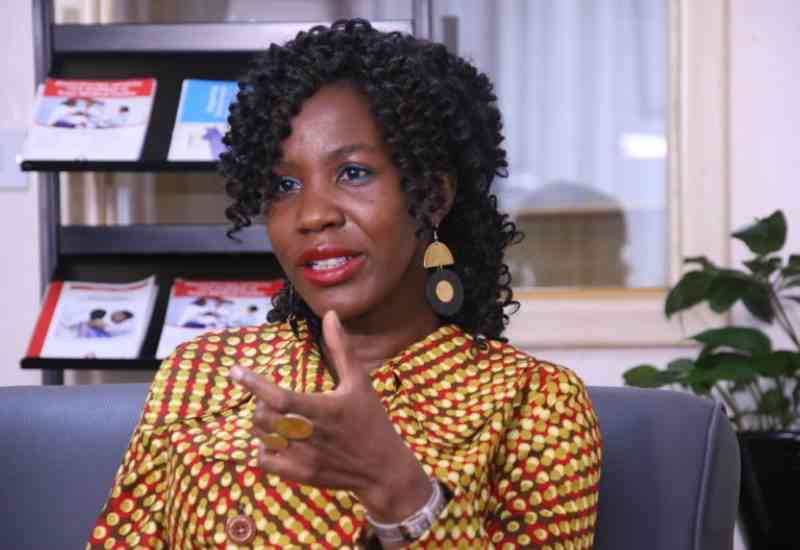
When I first heard of Dr Miriam Mutebi, I expected someone much older, around 65 or 70, due to her impressive resume, but it turns out she is much younger having completed studying General Surgery in 2012.
Her achievements include being the first female breast cancer surgeon in Kenya and numerous appointments, including co-chair of a government task force tasked to design an effective cancer management structure in Kenya.
She is the president of the Kenya Society of Hematology and Oncology, chair of the Commonwealth Task Force for the Elimination of Cervical Cancer and sits on the board of directors of the Union for International Cancer Control, representing Africa.
She was most recently elected as president of the African Organization for Research and Training in Cancer (AORTIC), a Pan-African multi-disciplinary organization that builds capacity for cancer advocacy, research and training in Africa.
It is the largest and most influential continental organisation involved in the promotion of cancer care and control.
She will hold the position for four years - two as president-elect and the rest as president.
With all this and a lot more, I expected a stern-faced, no-nonsense woman with little time to spare, but I was met by a very cheerful soul who insists I call her Miriam, laughs easily and reads a lot.
She is carrying a huge historical fiction novel, The Mirror & The Light, by Hilary Mantel when I meet her for the interview at a lounge in her workplace, Aga Khan University Hospital. I comment on the size of the book.
- Helping your teen navigate the dating scene
- Suzie Wokabi: The making of a beauty empire
- Telling African stories through film
- Mary J. Blige on a mission to help women discover their strength
Keep Reading
"Oh! They're actually three books. This is the third in a trilogy," she says.
"How you tell a book is interesting is the fact that it's that big, but at night you're up turning the pages like you can't wait to finish!"
She then dives into a fascinating description of what the book is about, Henry the Eighth.
"It's told through the perspective of Thomas Cromwell, who was Henry the Eighth's sort of henchman. If you think about it, it's like having Moi and then having Biwott write a book about what life was like then..."
By the time she is done, I want to read the book.

The question in my mind is: where does she find the time?
"I think it's one of my really guilty sort of pleasures. It's one of those things that you intentionally need to make time," she says.
She was one of those children who really loved to read growing up. One of the things that intrigued her was discovering the library at Catholic Parochial, the primary school she went to. She says that she had and still has an overactive imagination.
"Just being able to get into different worlds for me as a kid was very magical," she says.
She confirms what I'm thinking - she could have been a writer. She is one. She does creative writing. "I still have dreams of the next great African novel, so wait for it!" she says with a laugh.
"I write poetry, some of it really bad, some of it reasonable enough to get published... I have two books I'm currently working on. It's slow, I feel like I need to light a fire under myself, but it's one of my passions," she says.
The books are about her experiences in medicine and the humour behind it. She gives me a teaser of what is in them, and we are soon laughing as she tells me some of the experiences she has had in the course of duty.
"Sometimes from the outside, we're all super serious. We come in and put on our game face and go in... But there's so much humour," she says.
"There are funny moments even in the midst of suffering, and I think that's what keeps us going."
She clearly lives on the light side of life. In addition to all that, she also runs an Instagram page, The Indolent Cook, where she shares recipes that are easy to whip up in under 30 minutes to prepare.
Our conversation runs the gamut from that to the medical TV series Grey's Anatomy, which I learn she stopped watching because she was getting too critical as a medic.
"I think the over-engagement prevents you from enjoying the drama," she says. Ultimately, of course, she is a breast cancer surgeon.
"I always like to say I'm a breast cancer surgeon by day and a clinical epidemiologist and health systems researcher by night. What that means is that I really do quite a bit of research and one of the key areas of my research is understanding barriers to access for women who have cancers mainly in East Africa but hoping to expand that to the continent, but really understanding the barriers and then designing interventions that talk to those barriers."
Through this, she has found out that in sub-Saharan Africa, women are not the primary determinants of their health-seeking behaviour.
"Even in some parts of Kenya, you actually require permission or financial support in order to access care," she says.
As a cancer surgeon, she has heard heartbreaking stories where once women tell their husbands that they have cancer.
"I have had patients who, unfortunately after they have had surgery for instance to have their breast removed, they are told basically, 'Don't come home,'" she says. "Some communities believe that if you have breast cancer it is because somebody other than your partner has seen your breasts."
So there is the stigma surrounding reproductive cancers, especially an added layer of shaming of patients accused of not being morally upright, meaning that women will hide the problem until it is too late.
This and many other issues surrounding cancer are what she is working to resolve, as an individual, as co-chair of the government task force and all other initiatives she has been appointed to.
"With the task force, it's been a fascinating experience, and the mandate has been: looking at cancers in Kenya, how do we improve the entire patient journey? All the way from early detection, diagnosis, treatment, service delivery, post-treatment continuations, looking at all these different aspects and things you wouldn't intuitively think of as related," she says.
She says they are trying to have a multi-sectoral approach to tackling the cancer burden and changing the narrative.
Getting into breast surgery cancer for her was in order to take a more active role in making a difference, having seen younger and younger patients with breast cancer in the course of her rotations when she was starting out, realizing that there was clearly a different pattern in the occurrence of breast cancer in sub-Saharan Africa and wondering what was going on.
Her passionate love for reading and her passion for medicine go hand in hand with achieving her goal of making a difference.
"The first thing you learn about medicine is that you are a lifelong learner. One of the tenets I really appreciated from Aga Khan is that push towards self-directed learning because medicine is a very dynamic field and breast cancer management is also one of those very vast areas," she says.
"Just because it's the most diagnosed cancer worldwide, there has been a lot of concerted efforts, push and research into treatments and therapies and that kind of thing, it's one of those fields that is really dynamic, so you need to be consistently reading and stuff, so that's where the reading helps!"
 The Standard Group Plc is a multi-media organization with investments in media platforms spanning newspaper print
operations, television, radio broadcasting, digital and online services. The Standard Group is recognized as a
leading multi-media house in Kenya with a key influence in matters of national and international interest.
The Standard Group Plc is a multi-media organization with investments in media platforms spanning newspaper print
operations, television, radio broadcasting, digital and online services. The Standard Group is recognized as a
leading multi-media house in Kenya with a key influence in matters of national and international interest.

